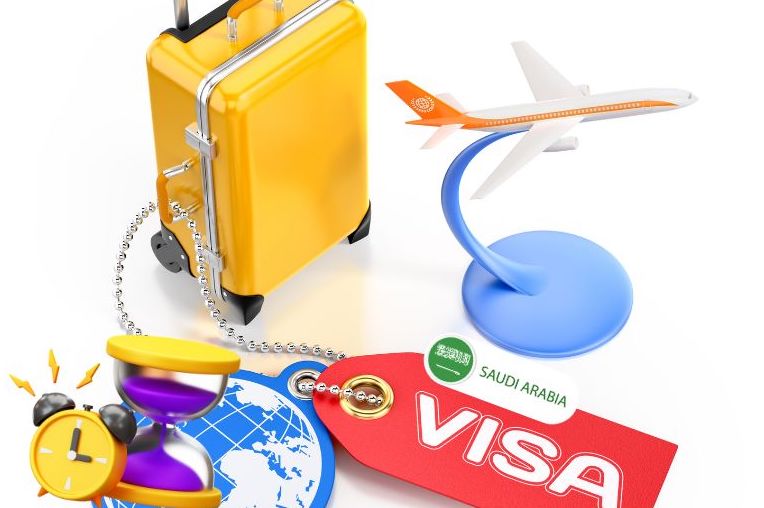Around 13 million expatriates from around the world live and work in Saudi Arabia. The Kingdom of Saudi Arabia offers a wonderful opportunity for expats to work and invest in their land. But, before you start to live and work here, it is important to understand the significance and application of IQAMA. If this is your first time in Saudi Arabia, chances are you would have never heard this term before. Iqama is your key to living and working legally in the Kingdom.
Keep reading to uncover all the information on Iqama Saudi Arabia and how to apply for it.
A. What is Iqama?
The Iqama, also known as a Residence Permit, is a crucial document for anyone living and working in Saudi Arabia. It acts as both your ID card and your work permit, granting you access to essential services and allowing you to legally reside in the Kingdom. It also allows you to change jobs, access relevant services, and travel to and fro from the country. So, the card is compulsory for anyone who wishes to shift or move to Saudi Arabia.
B. What does an Iqama look like?
An Iqama is a plastic card that resembles an official ID card. It has 10-digit numbers, either at the bottom center or below the applicant’s picture.
C. Benefits of Iqama
So, how important is Iqama in Saudi Arabia? Iqama is your lifeline in Saudi Arabia. It is mandatory for all foreign residents willing to reside in the country. Without a valid Iqama, individuals may face legal consequences, including fines, deportation, or imprisonment. Besides this, it helps you conduct a range of activities:
- Open bank accounts
- Sign rental contracts
- Obtain a SIM card
- Obtain driving licenses
- Access to Healthcare and other government services
D. Things to Know About Iqama
- When an employee travels outside the country on an entry visa, he needs to carry an Iqama with him for identification.
- When leaving Saudi Arabia permanently or at the end of an employment contract, expatriates must cancel their iqama. Failure to cancel the iqama properly may lead to difficulties in re-entering the country or future legal issues.
E. Should I apply for Saudi Arabia Iqama?
Anyone who has to work in Saudi Arabia must apply for Iqama. Any foreign resident in Saudi Arabia on a work or dependent visa requires an Iqama. This includes individuals employed by companies, government institutions, or even private households.
For this, the local employer stands as a credible agent for the worker. The employer sponsors and applies for the Iqama (residence permit) on behalf of the worker to allow them to move freely in the country. They handle the process through the Saudi Ministry of Interior.
F. Saudi Iqama Requirements
You will need to provide the following documents for the Iqama application:
- Valid Passport: Ensure your passport has sufficient validity, at least 6 months beyond your intended stay in Saudi Arabia.
- Educational Certificates: The specific certificates required may vary depending on your profession, but generally, copies of your diplomas and degrees are requested.
- Police Clearance Certificate: A background check document issued by the authorities in your home country.
- Medical Test Results: You’ll need to undergo a medical examination in Saudi Arabia as part of the Iqama application process.
- Photographs: Passport-sized photos meeting specific requirements. It is clicked across a white background.
- Biometric Data: Fingerprints and photographs will be collected at the Jawazat office (General Directorate of Passports) during the application process.
G. How to Apply for Saudi Arabia Iqama?
This is not your usual visa application and thus the process may seem arduous. Here is the simple process to follow:
1. Block Visa Application:
- Your Saudi Arabian employer initiates the process by applying for a block visa with the Ministry of Labor and Social Development (MLSD). This essentially allows them to hire foreign workers.
- There are various factors that grant this permission, for example, the applicant’s nationality, country of origin, and job role.
2. Visa Authorization & Power of Attorney:
- Upon approval of the block visa, your employer obtains a visa authorization number and a power of attorney from the Ministry of Foreign Affairs (MoFA). This empowers them to act on your behalf for the work visa application.
3. Work Visa Application:
- With the authorization and power of attorney, your employer applies for a work visa for you at the MoFA. For this, the employee must go through a medical exam and furnish a medical certificate.
4. Entry and Work in KSA:
- Once the work visa is granted, you can enter Saudi Arabia and begin your employment.
5. Work Permit & Iqama Application:
- Within 90 days of your arrival, your employer submits an application for your work permit and Iqama to the MLSD. This application usually involves medical examinations and biometric data collection (fingerprints and photographs) at a Jawazat office (General Directorate of Passports).
H. How long does it take to get Iqama in Saudi Arabia?
From a couple of days to four weeks, the processing of Iqama in Saudi Arabia varies according to the job and nationality.
I. How can I check my Iqama details?
1. Iqama status and expiry date check via Moi portal
To know the current Iqama ID status, whether it is valid or expired, head to the Ministry of Labour (MoL) portal and get your Iqama status check. Through www.moi.govi.sa iqama expiry date check number is also possible. This is the best method to check Iqama status in case you do not have an Absher account. Here are the quick steps:
- Go to the the MoI portal (www.moi.govi.sa).
- Choose e-forms.
- Feed in your Iqama number.
- Write your date of birth. This can be done in both Hijri or Gregorian format.
- Enter the captcha number and click ‘next’.
2. Iqama check KSA via Absher

- Visit the Absher portal.
- Login to your Absher account.
- On being asked, enter the OTP sent to your registered mobile.
- Select the ‘Query Iqama Expiry Service, menu.
On entering, the expiration date of your Iqama will be displayed on the screen.
J. Iqama Colors
There is a color-based system linked to Iqamas called the Nitaqat program. This program assesses your employer’s compliance with Saudization goals, which is the percentage of Saudi Arabian citizens employed by a company.
Here’s the breakdown of the Nitaqat program colors:
- Platinum (or High Green): This indicates your employer is exceeding expectations in hiring Saudi nationals.
- Low Green: This means your employer is meeting some Saudization goals but may be in a transitional phase.
- Red: This signifies your employer isn’t meeting Saudization requirements and could face penalties.
you can find out your company’s Nitaqat status through the Saudi Ministry of Labor website or by inquiring with your employer.
K. Is Saudi Arabia a Good Place to Work?
Saudi Arabia, the biggest economy in the Middle East, is a great destination for job seekers and investment lookers. It offers lucrative opportunities to ex-pats as it has low to no income tax bars and thriving financial management. Some of the great reasons why you should move to Saudi Arabia are:
-
Financial Gain: Saudi Arabia offers tax-free salaries and a high cost of living compared to many Western countries. This means you can potentially earn a lot more money and save more of it than you could at home.
-
Career Opportunities: The Saudi economy is undergoing a period of significant growth, which means there’s a demand for qualified professionals across a wide range of industries, from oil and gas to tech and healthcare. This can be a great chance to land a good job and develop your skills.
-
Adventure and Experience: Living and working in Saudi Arabia can be a very different experience from life in many other parts of the world. It’s a chance to immerse yourself in a new culture, learn a new language (Arabic), and see a different part of the world.
L. What are the Iqama fees?
Iqama costs SAR 650 for a year, SAR 488 for 9 months, SAR 325 for 6 months, and SAR 163 for 3 months.
M. How long is Iqama valid?
It is valid for a year and renewed thereafter for another year.
N. Can I renew my Iqama?
Iqamas typically last for one or two years and require renewal. Your employer usually manages renewals as well. Remember, it’s your responsibility to ensure your Iqama remains valid. Working without a valid Iqama is a serious offense. The renewal process involves similar steps to the initial application, including document submission and biometric data update. Failure to renew the iqama on time can result in fines, which escalate for each day of delay.
O. Iqama Penalties
- If the applicant does not report for Iqama renewal 3 days before expiry, the employer will have to pay double the fees. So, it is important to perform an iqama expiry check occasionally.
- If the applicant fails to cancel or renew the visa or get the final exit visa before Iqama’s expiry, he shall be fined as follows:
1000 SAR first time
2000 SAR second time
3000 SAR third time - If the applicant does not report the loss of passport or Iqama within 24 hours, he shall be fined similarly as above,
- In case of overstaying the visa, the violator shall be given a fine and penalties.
P. Other Things to Remember
- Once you get your Iqama, don’t forget to carry it along with you.
- Don’t tamper with your Iqama as it could result in penalties.
- In case of loss or damage, report it immediately to the authorities and apply for a replacement. A lost or stolen iqama should be reported and replaced as soon as possible to avoid legal complications.
- Expatriates are required to report any changes in their status or circumstances to the relevant authorities promptly. This includes changes in employment, marital status, address, or any other significant life events.
Conclusion
The iqama system in Saudi Arabia is essential for expatriates residing and working in the Kingdom. It provides legal residency, identification, and access to essential services. Understanding the application process, renewal requirements, rights, and responsibilities associated with the iqama is crucial for expatriates to maintain compliance with Saudi laws and regulations.

A travel influencer, adventurer and blogger on a mision to dicover the hidden gems of this beautiful planet. For me traveling isn’t a hobby, but a way of living.



